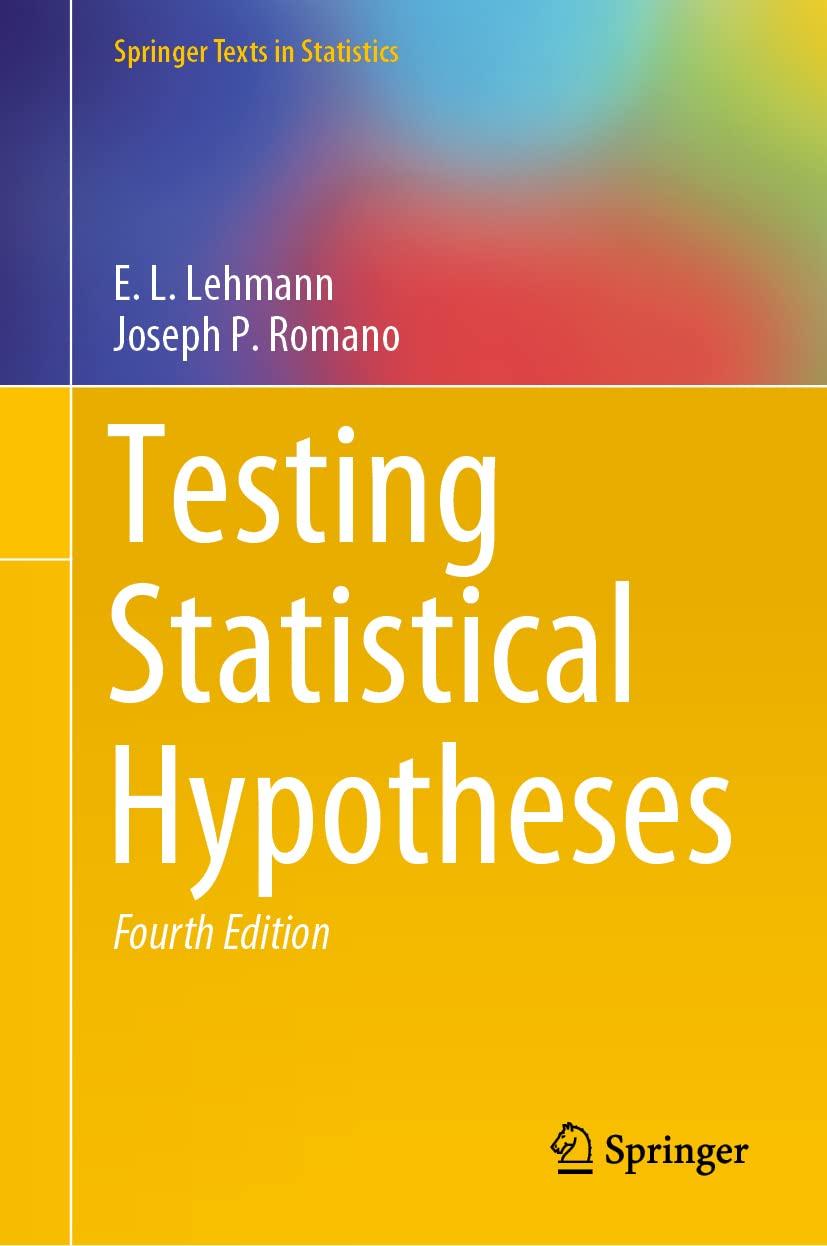Suppose X1,..., XI are independent and binomially distributed, with Xi b(ni, pi); that is, Xi is
Question:
Suppose X1,..., XI are independent and binomially distributed, with Xi ∼ b(ni, pi); that is, Xi is the number of successes in ni Bernoulli trials.
Suppose that pi satisfies log[pi/(1 − pi)] = θdi for known constants di , which implies pi = edi θ
1 + edi θ
(Think of di as the dose given to ni subjects, and you observe Xi deaths at the dosage level di .) Both di and ni are known.
(i) For testing the null hypothesis θ = 0 against θ = 1, find the form of the most powerful level-α test and show that it rejects for large values of a test statistic T .
(ii) If the null hypothesis is true and the sample sizes ni are moderately large, what is the approximate distribution of T ?
(iii) If I = 5, di = i and ni = 100, approximate the p-value of your test if you observe X1 = 40, X2 = 51, X3 = 64, X4 = 73 and X5 = 80.
Section 11.4
Step by Step Answer:

Testing Statistical Hypotheses Volume I
ISBN: 9783030705770
4th Edition
Authors: E.L. Lehmann, Joseph P. Romano






